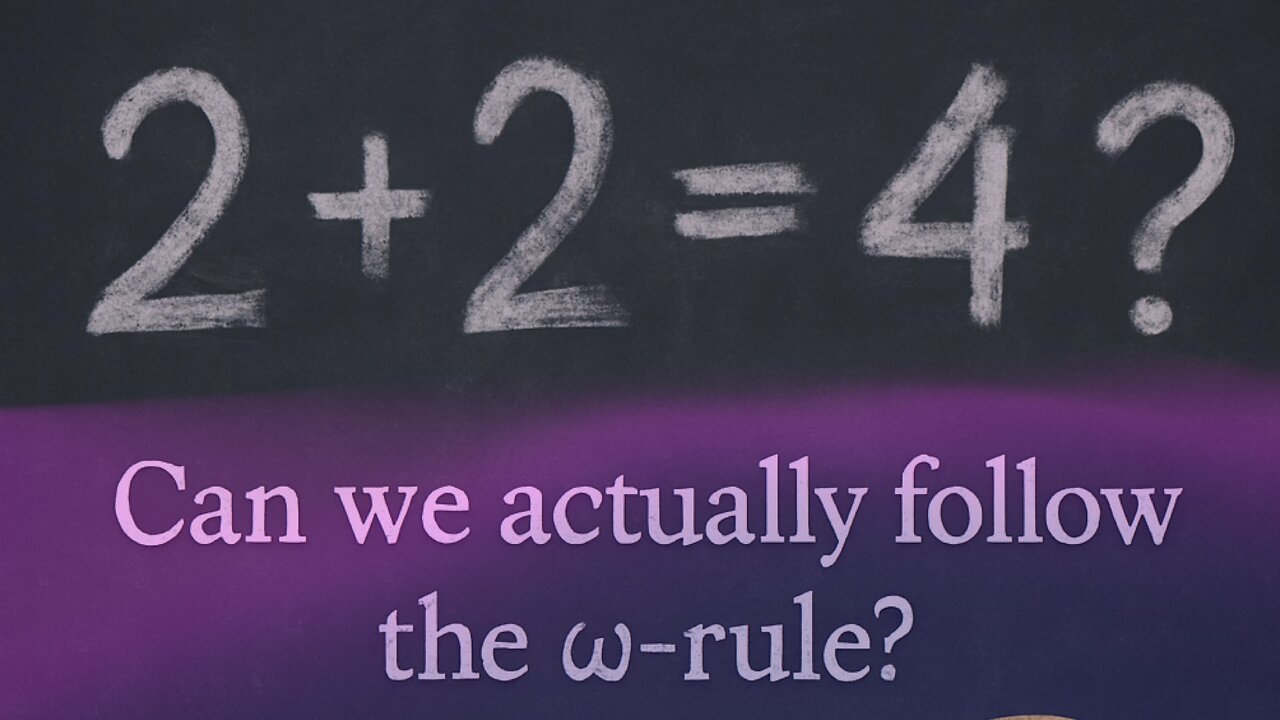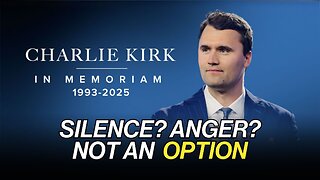Premium Only Content

Can We Follow the Omega Rule? Infinitary Inference and Human Reasoning
In his forthcoming Philosophical Quarterly article, Brett Topey challenges the assumption that finite beings cannot employ the ω‑rule—an infinitary rule of inference. Responding especially to Jared Warren, Topey argues that apparent uses of the ω‑rule can be more plausibly explained via finitary reasoning. This inquiry raises fundamental questions about arithmetical determinacy, mathematical language, and the limits of human inference.
This podcast delves into a philosophical debate regarding whether finite beings can follow infinitary rules of inference, specifically the omega rule. The omega rule posits that if one accepts an infinite number of premises asserting a property for each natural number, one can then conclude that all natural numbers possess that property. The source outlines Brett Topey's challenge to Jared Warren's argument, which claims we do follow this rule, primarily through the thought experiment of a "supertask computer" checking Goldbach's Conjecture. Topey counters with a finitary reconstruction of our reasoning, the "pause button" variant, and a reinterpretation of Warren's "Martian mathematicians" to demonstrate that our inferences are based on generalizations to instances, not the reverse. Ultimately, the text argues that if finite minds cannot follow the omega rule, then the determinacy of arithmetical truth cannot be explained by its application, suggesting that "some other route" is required.
#omegarule, #infinitaryreasoning, #ω‑rule, #arithmeticaldeterminacy, #supertaskcomputation, #inferentialdispositions, #finitebeings, #JaredWarren, #philosophyofmathematics, #BrettTopey, #ThePhilosophicalQuarterly
Pleae note that this NotebookLM podcast may contain errors and it is therefore important to refer to the source documents.
Brett Topey, Can we follow the omega rule?, The Philosophical Quarterly, 2025;, pqaf059, https://doi.org/10.1093/pq/pqaf059
Creative Commons
This is an open access article distributed under the terms of the Creative Commons CC BY license, which permits unrestricted use, distribution, and reproduction in any medium, provided the original work is properly cited.
You are not required to obtain permission to reuse this article.
-
 1:59:22
1:59:22
The Quartering
2 hours agoJustice For Charlie Kirk! FBI Releases Photo Of Shooter, Mass Firings For Those Who Celebrate!
204K107 -
 36:31
36:31
Stephen Gardner
2 hours ago🔥NEW: FBI's Bombshell Reveal on Charlie Kirk Assassin!
34.3K71 -
 LIVE
LIVE
RealAmericasVoice
3 days agoHOME OF REAL NEWS
9,023 watching -
 LIVE
LIVE
The HotSeat
1 hour agoThe Manhunt Is Underway! Time Is Running OUT!
1,560 watching -
![[Ep 746] Remembering: Charlie Kirk, 9/11, Benghazi | Guests Dave Bray [USA] & Tim Cruickshank](https://1a-1791.com/video/fww1/56/s8/1/i/-/-/g/i--gz.0kob.2-small-Ep-746-Remembering-Charlie-.jpg) LIVE
LIVE
The Nunn Report - w/ Dan Nunn
2 hours ago[Ep 746] Remembering: Charlie Kirk, 9/11, Benghazi | Guests Dave Bray [USA] & Tim Cruickshank
223 watching -
 22:31
22:31
Jasmin Laine
1 hour agoMSNBC Analyst FIRED in Disgrace Over Charlie Kirk Remarks—FBI Launches $100K Manhunt
8.45K24 -
 LIVE
LIVE
The Tom Renz Show
1 hour agoRIP Charlie Kirk - Updates On America’s Turning Point
311 watching -
 31:05
31:05
Uncommon Sense In Current Times
1 hour agoCharlie Kirk Assassinated: Why Silence nor Anger is Not an Option
4.14K2 -
 54:06
54:06
Ben Shapiro
2 hours agoEp. 2278 - UNTHINKABLE: Charlie Kirk, 31, Assassinated
61.1K96 -
 2:49:18
2:49:18
Robert Gouveia
5 hours agoCharlie Kirk Latest News; FBI Briefing; Shooter Photo Captured; 9/11 Honors
77K17